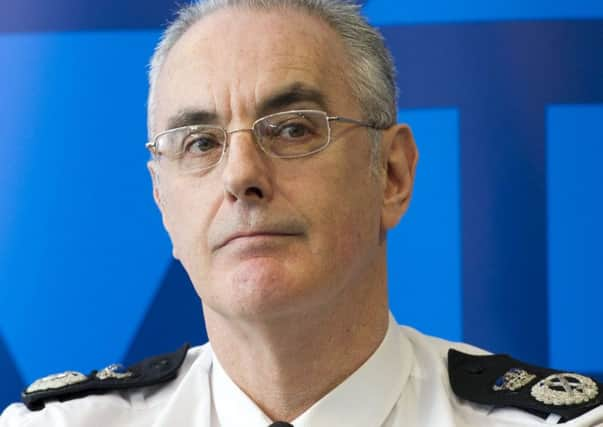Chris Marshall: Police Scotland unable to shake off trouble at the top


After its early travails during which the force seemed to lurch from crisis to crisis on an almost weekly basis, there have have been no major scandals, no headline-grabbing failures.
Whether he was responsible for it or not, this period of apparent consolidation coincided with the appointment of Phil Gormley as chief constable in late 2015.
Advertisement
Hide AdAdvertisement
Hide AdBut that period of quiet came to an abrupt end last week when it emerged the chief constable is being investigated over allegations of bullying.
If proved, the behaviour would amount to gross misconduct and most likely lead to Mr Gormley’s dismissal.
But while the investigation continues, worrying details have emerged about the leadership of Police Scotland and its inability to both recruit and retain candidates in top jobs.
News of the investigation into Mr Gormley came a week after his deputy, Iain Livingstone, announced his decision to take early retirement from the force at the age of just 50.
According to insiders, Mr Livingstone – who will step down in the autumn – has been effectively running the force while the chief constable takes on a more “ambassadorial” role.
There is a good deal of frustration within Police Scotland that someone with the experience and talent of the deputy chief constable would choose to leave, despite earning a salary close to £170,000 a year.
It is understood that during the recent recruitment process for an assistant chief constable – a role which commands a salary of £115,000 – there was just one external applicant.
It may be too early to call it a recruitment crisis, but it appears the force, which is second only to the Metropolitan Police in terms of size, has issues to solve.
Advertisement
Hide AdAdvertisement
Hide AdOne theory is that the growing politicisation of policing in Scotland since the creation of the single force in 2013 is putting experienced officers off from applying for the most senior positions.
But it was inevitable the creation of a monolithic service would lead to increased scrutiny in both the media and at Holyrood.
And while stories around stop-search and spying on journalists may have not received the same level of coverage had they happened during the time of regional forces, others such as the row over armed policing and the M9 tragedy would always have been of national interest, whether there was one police force or eight.
Kenny MacAskill, himself a former architect of Police Scotland but now free of the circumspection required for being justice secretary, last week warned the force faces a “leadership gap” in the months and years to come.
As well as Mr Livingstone’s departure, it has been suggested that a number of others in the senior management team are preparing to jump ship.
There is trouble too at the top of the Scottish Police Authority, where the chairman has resigned but continues to limp on in post, while pressure grows on the organisation’s chief executive.
While the SPA’s problems appear more intractable, this may all just be a mometary blip for Police Scotland, with normal service resumed should the chief constable by cleared following the ongoing investigation.
It’s clear for the time being, however, that the force’s problems are not yet a thing of the past.